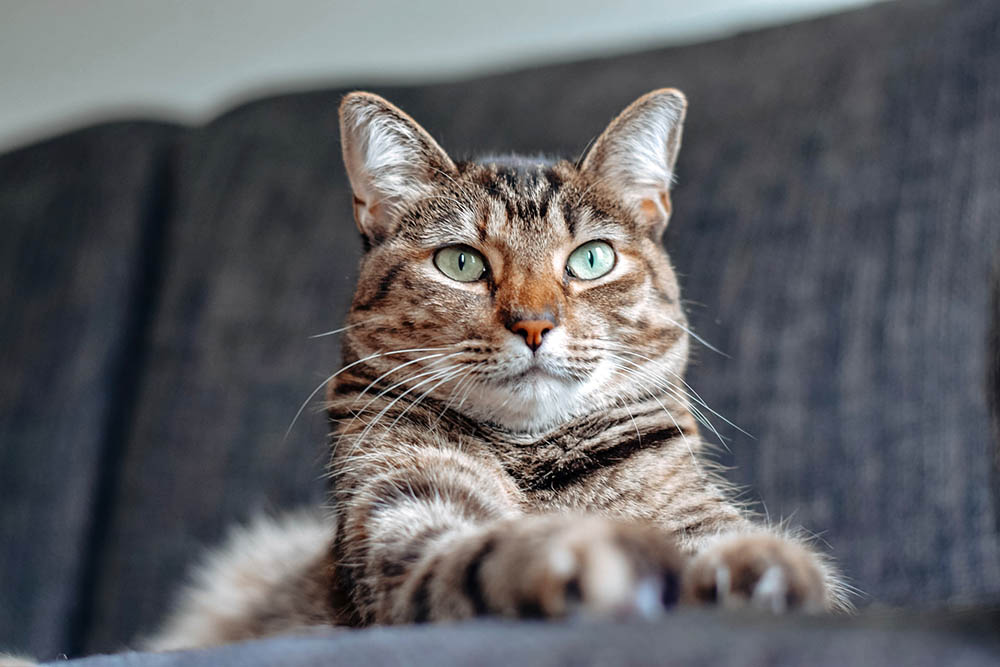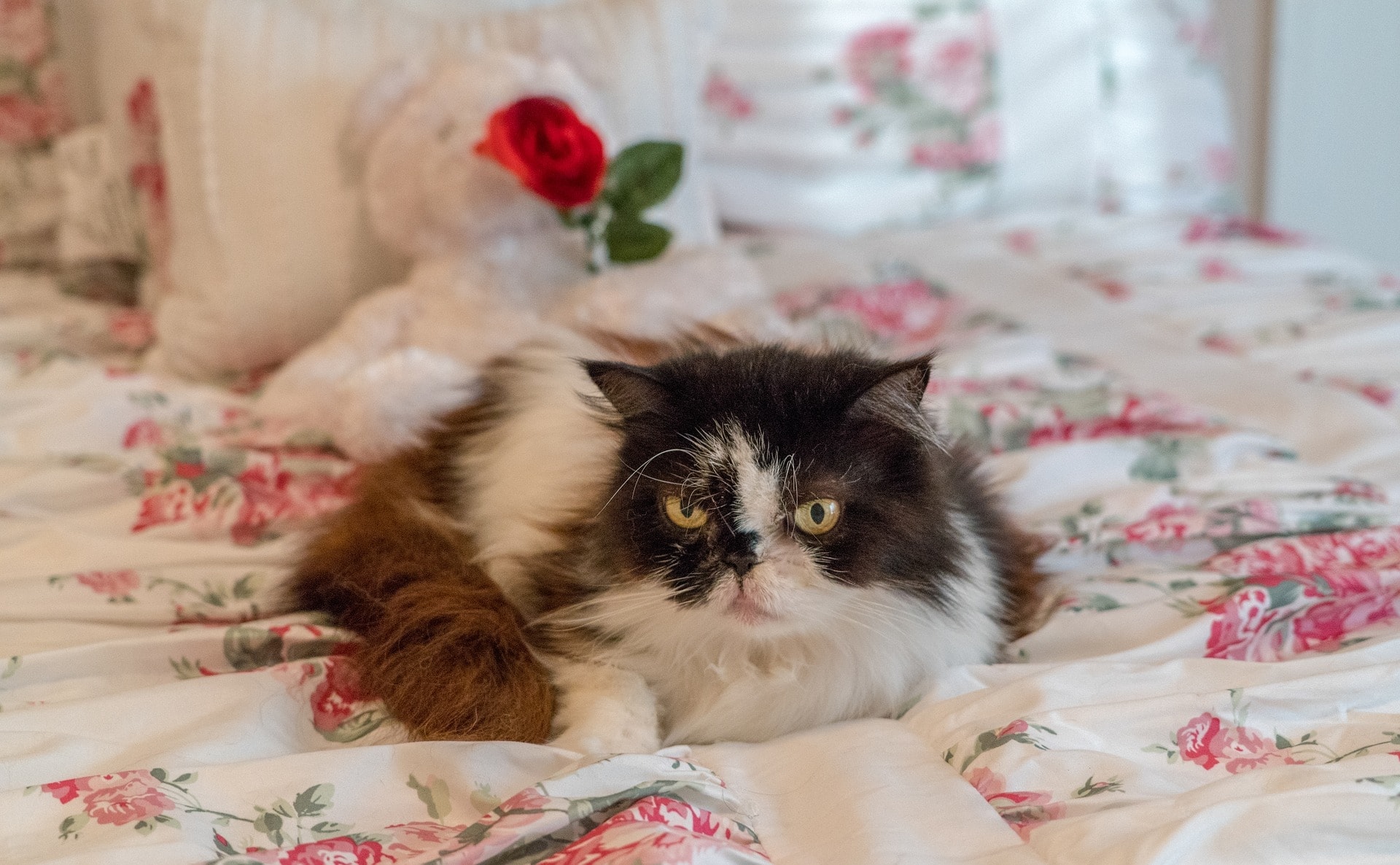Is Dawn Dish Soap Safe for Cats? Vet-Reviewed Safety Facts

Updated on
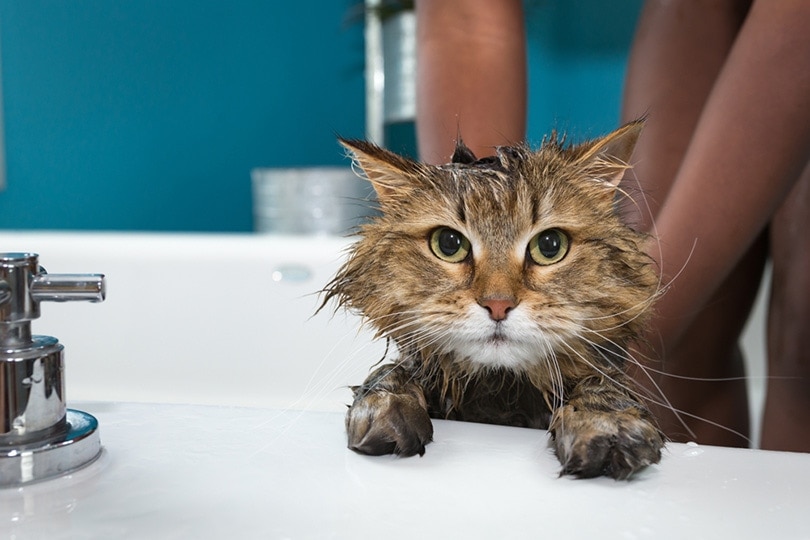
Dawn dish soap is a popular choice for cleaning dishes, but is it safe for cats? Dawn dish soap is effective at cleaning dishes and can safely be used in the home to clean up your cat’s messes. Some people say that it is safe to use Dawn dish soap to clean your cat’s fur, while others say that it is not safe to use at all.
Dawn dish soap is made with ingredients that are safe for pets, but it is quite a harsh detergent. There are circumstances in which cleaning your cat with Dawn may be the right choice, but it’s always best to check with your veterinarian before using any new product directly on your pet. In this article, we will explore the safety of Dawn dish soap and its effectiveness as a cat fur cleaner, and when it could be used.
 What Is Dawn Dish Soap Made Of?
What Is Dawn Dish Soap Made Of?
Dawn dish soap is made of a variety of chemicals that are combined to create a cleaning agent. The most common ingredients in Dawn dish soap are surfactants, which are compounds that lower the surface tension of water, allowing it to more easily dissolve grease and dirt. The chief surfactant in Dawn dish soap is made of a chemical compound known as sodium laureth sulfate. This compound is derived from natural ingredients like coconut oil and sugarcane. This makes the soap more effective at cleaning dishes and other surfaces.
The compound is also gentle on the skin, making it a popular choice for dishwashing detergent. Other ingredients include solvents, thickeners, and fragrances.
https://www.instagram.com/p/CTFynCNFrzz/?utm_source=ig_web_copy_link
How Effective Is Dawn Dish Soap As a Cleaner for Cats’ Fur?
The Dawn dish soap brand has been around for many years and has a good reputation among consumers. Dawn has strong surfactants that are highly effective at breaking down dirt and removing grime and smells from your cat’s fur. However, it’s not necessarily always the right product to reach for.
Is Dawn Dish Soap Safe for Cats?
Dawn dish soap has been the subject of much debate as to whether or not it is safe for cats. The soap is made with a variety of chemicals and detergents that are safe for use on cats’ fur and will not harm them if it’s used appropriately. The soap is definitely effective at cleaning their fur and removing any dirt or debris. However, it is important to avoid overuse, make sure you rinse your cat thoroughly and do not get the soap into their eyes as it may cause irritation.
For regular bathing, you are better off using a gentle shampoo designed specifically for cats.
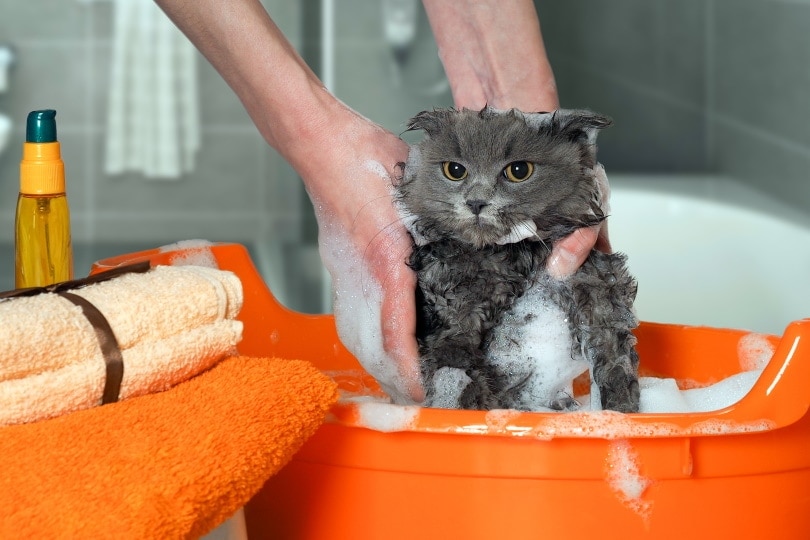
Is Dawn Dish Soap Toxic for Cats?
Dawn dish soap is not toxic for cats, but it can be irritating if it’s used too often. If it’s used properly, the ingredients in the soap are not harmful to felines and will not cause them any harm. When used correctly, Dawn is non-irritating, so it should not cause your cat to have any skin inflammation.
Nevertheless, reactions can vary depending on the individual cat. It’s always best to err on the side of caution and spot-test any kind of soap or detergent on cats if you’re unsure whether or not it will be tolerated. Generally speaking, Dawn dish soap is not considered hazardous for cats and is safe to use in their environment and even occasionally in limited circumstances.
Dangers Of Dawn Dish Soap for Cats
Dishwashing soaps aren’t appropriate for regularly bathing your cats. Frequent use will strip your kitties’ coat of the natural oils that nourish and protect their fur and skin. As a result, the dermis is less hydrated and less able to fight off irritations caused by bacteria, yeast, and allergies. Your cat’s scalp may end up becoming dry and itchy if you use Dawn as a regular cat shampoo.
Feline skin is more sensitive than human skin and is not meant to be exposed to harsh chemicals. Dawn dishwashing detergent also contains scents that can be overwhelming and irritating to some cats.
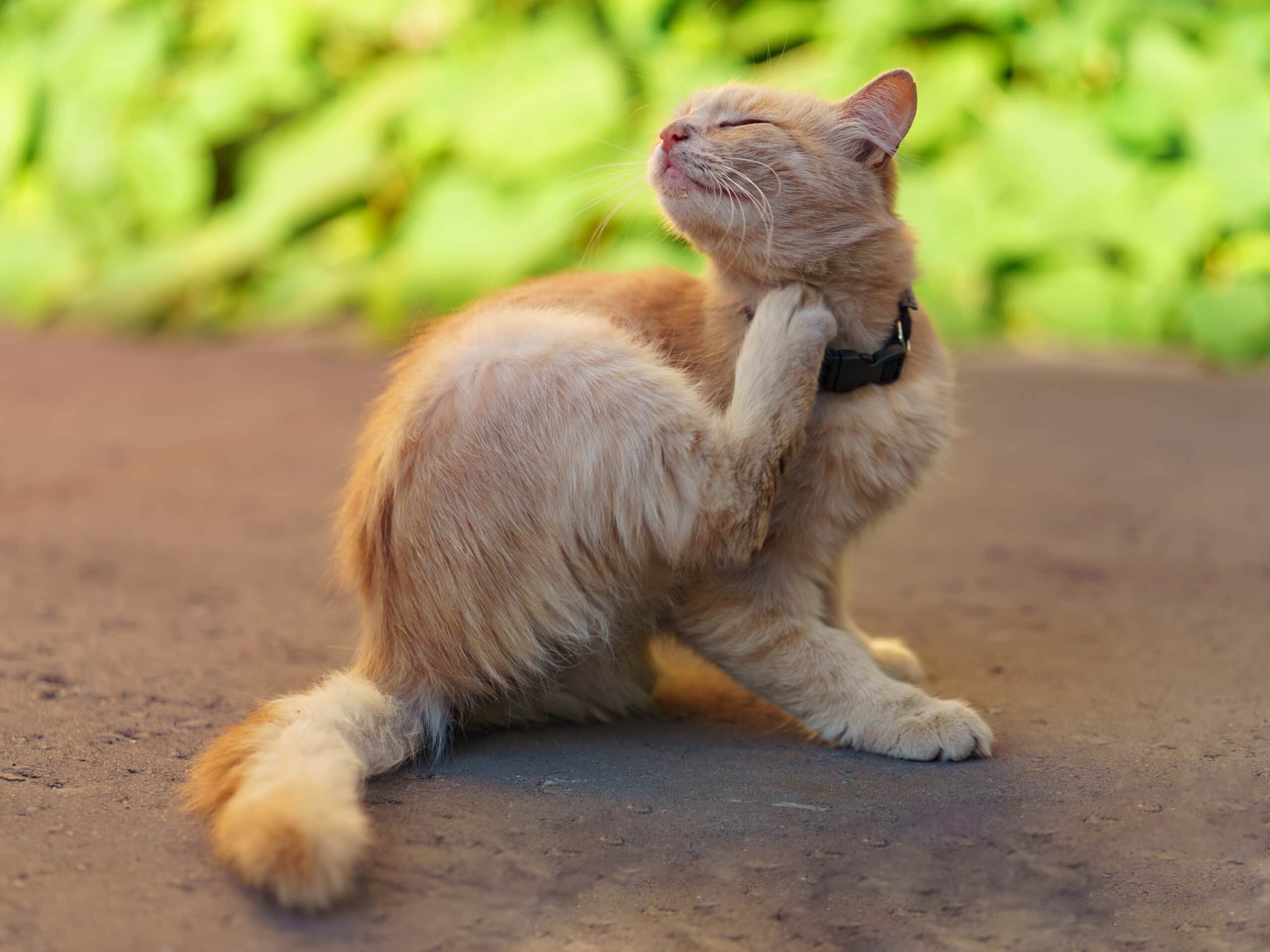
When To Use Dawn Dish Soap To Clean Your Cat
The surfactants in Dawn are famously effective at treating wildlife affected by oil spills and at deodorizing pets whose odor has been contaminated with oil because of their excellent grease and oil-removing ability. There are a variety of reasons why Dawn dish soap may be used to occasionally clean a cat. For example, if they were sprayed by a skunk, Dawn dish soap may be used to help remove the unpleasant odor.
Additionally, Dawn dish soap can be effective at cleaning up oil and grease, as well as removing ground-in dirt and poop. It’s a versatile cleaner that can be used to address a number of different cleaning needs. But dish soaps aren’t meant for the regular bathing of cats.
Can I Use Dawn Dish Soap To Treat My Cat’s Fleas?
Dawn dish soap kills fleas, but it’s not the most efficient or effective method, and it won’t prevent infestations. When oil or grease is present, soapy water forms micelles or foamy bubbles that trap grime. Dawn’s surfactant ingredients cling to the exoskeleton of adult fleas and make them sink. In other words, the soap drags them under the water’s surface and drowns them. While Dawn kills fleas on your cat, it doesn’t repel them like a commercial flea treatment. In this regard, it’s more of a temporary fix than a permanent one.
Remember, only a small number of fleas in an infested home are on your cat, there are many more fleas in their environment—for example in their bedding, and soft furnishings—and these will simply relatch onto the clean cat and restart the infestation cycle.
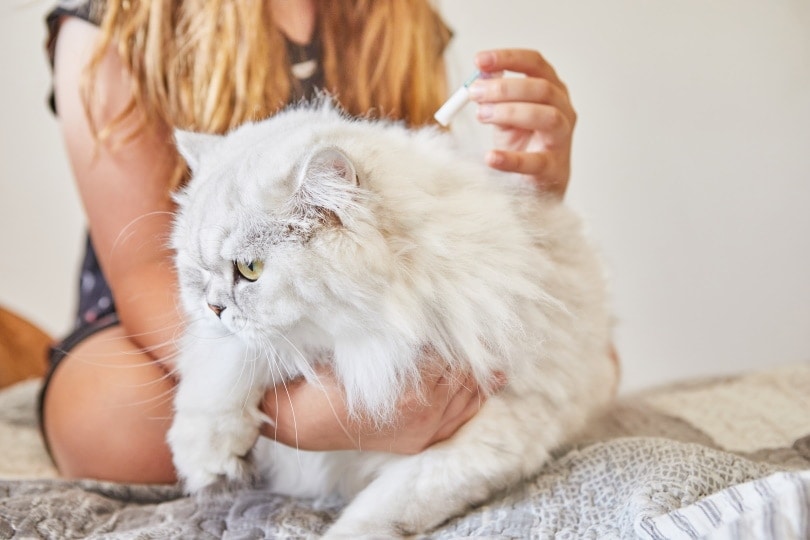
When Not To Use Dawn Dish Soap To Clean Your Cat
You should not use Dawn dish soap to regularly clean your cat. In addition to stripping the natural oils from their coat, there is a slight risk that even if you rinse your cat well, when used regularly your cat may ingest some soap residue over time as they groom themselves. If cats groom themselves and ingest Dawn it could potentially cause stomach upset, vomiting, and diarrhea.
Precautions To Take When Using Dawn Dish Soap On Cats
Dawn dish soap is an effective way to clean your cat’s fur in certain circumstances, but it’s important to take some precautions when using it. First, be sure to avoid getting the soap in your cat’s eyes. Dawn dish soap is designed to cut through grease and dirt, so it can be harsh on your cat’s delicate body, including their eyes. Second, make sure to rinse the cat off thoroughly after washing, so they don’t ingest it. Dawn dish soap can also be harmful if swallowed, so keep it out of reach of your cat.
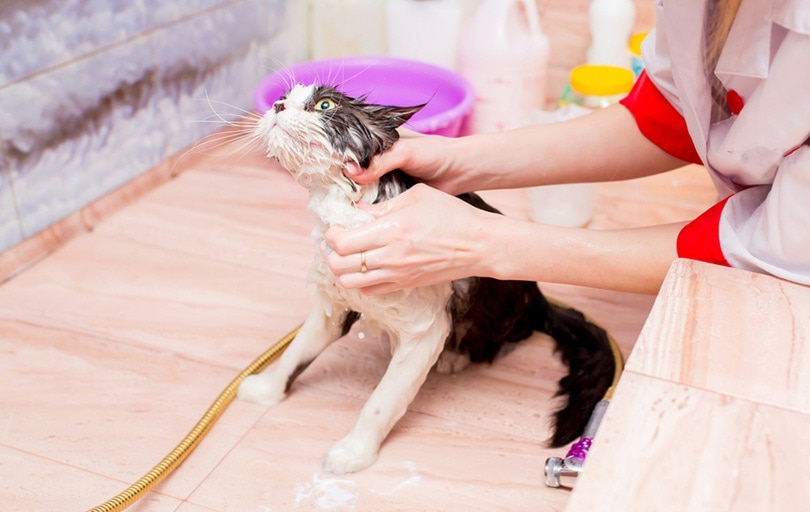
How To Clean a Cat’s Fur with Dawn Dish Soap
The process of cleaning a cat’s fur with Dawn dish soap is straightforward. Start by wetting their fur with water, then apply a small amount of soap to the fur. Less is more as Dawn is quite concentrated. Massage and lather the soap into the fur, gently going over the areas that are most smelly or dirty. Next, rinse the soap thoroughly. It’s important to make sure you’ve gotten all of the soap out. Finally, towel-dry the cat’s fur and if your cat is longhaired, you may want to brush the fur to help it dry evenly.
Do Vets Recommend Dawn Dish Soap?
Most veterinarians will not recommend Dawn as a cat shampoo, and it’s not labeled for feline use. Many vets will tell you to opt for a product designed specifically for pets. Some may recommend Dawn dish soap because they have had positive experiences using it to resolve ground-in dirt, skunk odor, or fleas, in the past, but most may believe there are better alternatives available. Speak to your veterinarian if you have concerns.
Bathing your pet can be challenging, but the right shampoo will make it a lot easier! We have two favorite shampoos for the job, both are safe, all-natural shampoos designed with your pets in mind. Our soothing shampoos are pH balanced, made in the USA, and free of glutens, dyes, sulfates, and phthalates. Here’s a quick guide to help you choose the right option for your pet’s next bath!
 Hepper Colloidal Oatmeal Pet Shampoo |
 Hepper Waterless No Rinse Pet Shampoo |
|
|---|---|---|
| Natural cucumber & aloe scent |
Natural cucumber & aloe scent:
|
Natural cucumber & aloe scent:
|
| Safe for cats & dogs |
Safe for cats & dogs:
|
Safe for cats & dogs:
|
| Rinsing required |
Rinsing required:
|
Rinsing required:
|
| Free of harsh chemicals & nasty ingredients |
Free of harsh chemicals & nasty ingredients:
|
Free of harsh chemicals & nasty ingredients:
|
| Lathers easily |
Lathers easily:
|
Lathers easily:
|
What Can I Use to Wash My Cat if I Don’t Have Cat Shampoo?
There are a few options for cat owners who may have run out of shampoo specifically made for cats. One option is to use a gentle baby shampoo. Another option is to use a dish soap like Dawn that is designed to be safe for human hands. A final option, if neither of the above solutions is available, is to use water only.
Whichever option is chosen, it is important to make sure that the product is diluted properly and that it is thoroughly rinsed off the cat after it has been used.
Final Thoughts
In conclusion, it is not recommended to use Dawn dish soap as a primary means of cleaning your cat due to its high concentration of chemicals. There are other gentler options available that are just as effective at cleaning your cat without the risk of harming their skin or making them sick.
We love our cats, so it is important to use a product that is specifically designed for cleaning their fur and skin. There are many safe and effective products on the market, so consult with your veterinarian to find the best option for your kitty.
See Also:
- Is a Humidifier Safe For a Cat? (Risks & Benefits Explained)
- Does Dawn Dish Soap Kill Fleas on Dogs? Is It the Best Option?
Featured Image Credit: Marie-Claude Lemay, Shutterstock

 What Is Dawn Dish Soap Made Of?
What Is Dawn Dish Soap Made Of?